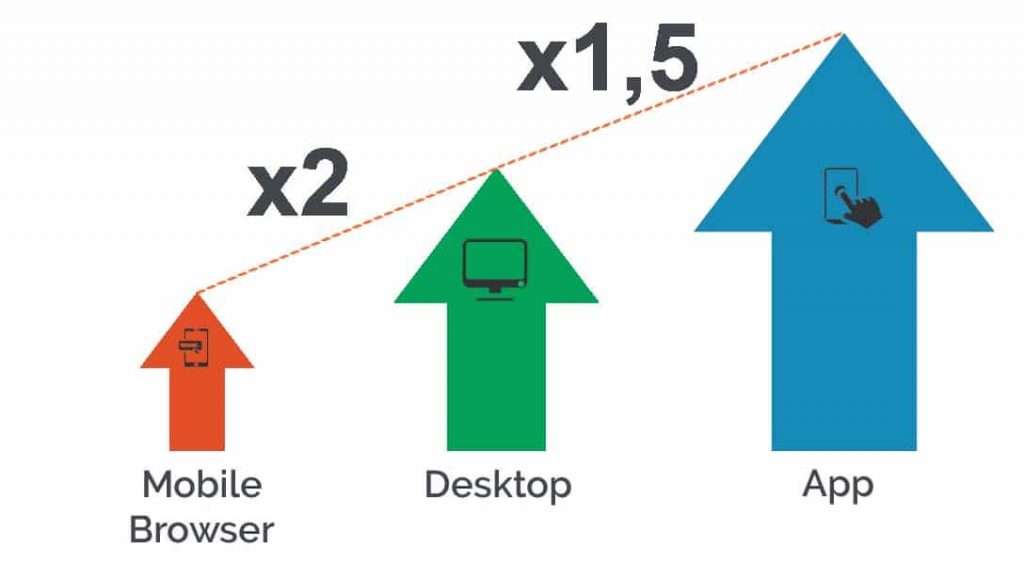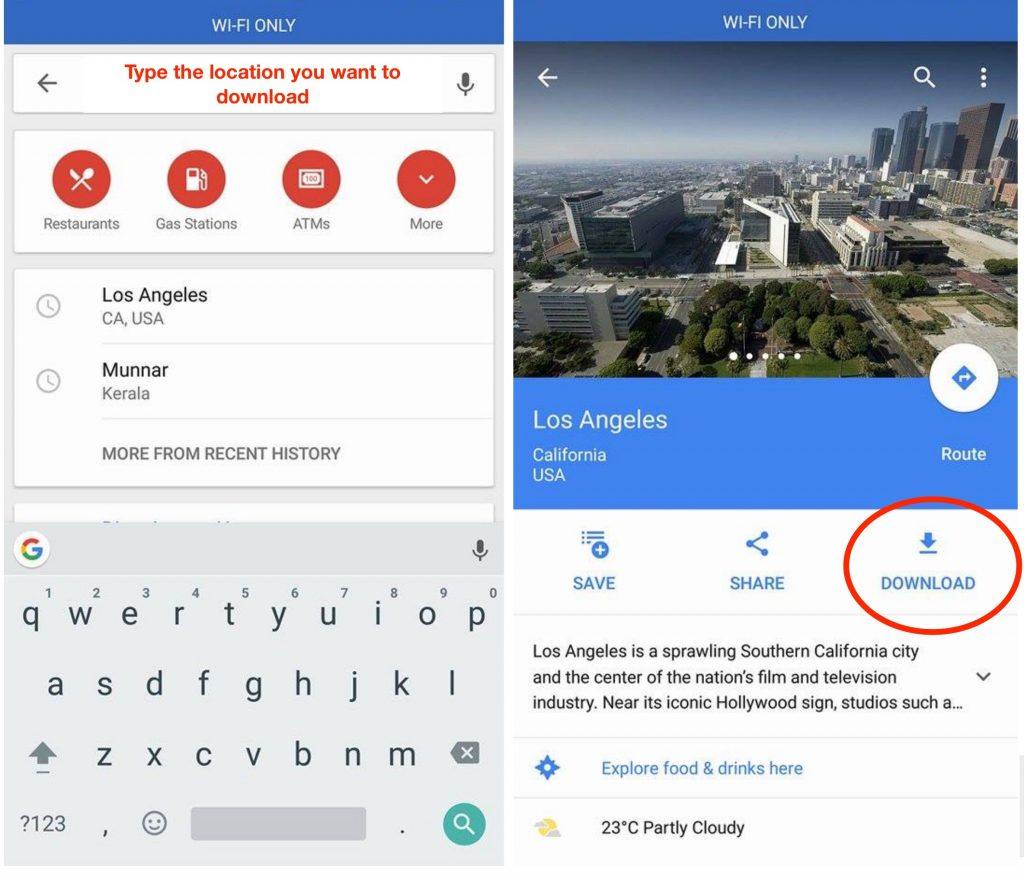Mobile Site vs Mobile App: Which One is Good for Your Business?

Mobile App Development
With the growing popularity of Smartphone and Tablet devices, more and more companies are becoming increasingly aware of the fact that they have to adopt a viable mobile outreach strategy sooner or later to reach a completely untapped audience. The major question, however, they are plagued with is whether they should go with a mobile app or mobile website, or perhaps both. While some argue that there is no need for a mobile app, a mobile site that looks great on mobile and tablet devices is adequate to establish a mobile presence, others say that a mobile app has benefits that a mobile website can never offer. This gives birth to a new battle: Mobile Site vs Mobile App.
While mobile apps and mobile website look quite similar at first glance, both are different from each other in many contexts like user experience, functionalities, and performance. If you’re planning to bring your business on mobile and are torn between a mobile app and a mobile website, we being a successful mobile app and web development company are here to help you make the right choice for your business. Let’s unveil the secrets to Mobile Site vs Mobile App forever and see which one you should go with for a strong mobile web presence.
Mobile Site vs Mobile App: The Main Difference
Before you even start solving the dilemma of Mobile Site vs Mobile App, it is crucial to understand the key differences between the two. A mobile site, like any other website, consists of HTML pages that are:
- Optimized and scaled for touch-screen interfaces and handheld mobile devices, such as Smartphones and Tablets
- Linked together
- Can be accessed over an active internet connection
Mobile apps, on the other hand, are application software that you download and install on your mobile device from an operating system-specific app marketplace such as Google Play and Apple App Store. Unlike a mobile website, they don’t render within a mobile browser and can even be accessed without an active Internet connection.
Mobile Site vs Mobile App : Winner = None
Mobile Site vs Mobile App: The Stats
According to a study done by eMarketer, users spend most of their mobile time on apps. If we present it into the percentage, over 90% of users’ mobile time is spent on apps and the rest 10% is spent on accessing the web through mobile browsers.

Another report by renowned Analytics firm Flurry reveals that users spend 86% of their mobile time on apps and just 14% on mobile websites.

So, based on the above statistics it’s evident that users prefer mobile apps over mobile websites.
Mobile Site vs Mobile App : Winner = Mobile App
Mobile Site vs Mobile App: Branding and Personalization
Personalization is all about delivering users a tailored experience based on their location, interests, behavior, etc, and a mobile app enables you to do it well. Allowing users to set up their preferences right from the onset, a mobile app pampers users with a personalized content, making their overall mobile experience satisfactory and delightful. Unfortunately, a mobile website can never do that.

And from the business perspective, nothing can beat a mobile app for branding and marketing. Even if the user does not use the app, the app icon – acting as a mini-advertisement – reminds him of your brand every time he explores his phone. Although almost all browsers facilitate users to bookmark a mobile website to their mobile device screen, it doesn’t prove as effective as an App icon.
Mobile Site vs Mobile App : Winner = Mobile App
Mobile Site vs Mobile App: Customer Engagement & Conversion
Since mobile apps built with a specific purpose in mind, they convert far better than mobile websites. Addressing all the pain points of users and offering them personalized recommendations based on their preferences, mobile apps offer users a number of interactive ways to engage with your content. According to research done by Criteo, mobile apps offer 3x higher conversion rates than mobile sites and even 1.5x higher conversion rates per session than Desktop.

Mobile Site vs Mobile App : Winner = Mobile App
Mobile Site vs Mobile App: Offline Access
The beauty of mobile apps is that they can be accessed and used even without an active Internet connection. Although there are many apps that require internet connectivity to let users perform most of their tasks, they still allow users to access certain content and functionalities even in offline mode. Perfect examples of this are Google Maps and TripAdvisor.

A mobile website, on the other hand, needs an active Internet connection to work. Even though mobile websites leverage Caching to load web pages without internet connectivity, they still offer limited functionalities.
Mobile Site vs Mobile App : Winner = Mobile App
Mobile Site vs Mobile App: Features & Functionalities
Since mobile apps are written using the specific language of the operating system of the device they are installed on, they’re able to harness the power of device’s native features and hardware, such as the camera, contacts, SMS, NFC, GPS, Sensors, and so on. This opens up a whole new world of unique app functionalities like:
- Push/In-app Notifications
- Location-based Mapping
- Tap-to-call/email
- Device Alerts
- Instant and Automatic Updates

Mobile websites, in contrast, face too many technological constraints when it comes to utilizing device-specific features and hardware, which ultimately results in fewer features and functionalities as compared to mobile apps.
Mobile Site vs Mobile App : Winner = Mobile App
Mobile Site vs Mobile App: Audience Reach
Since mobile websites are easily accessible across all platforms, search engines and mobile devices and can be easily shared among users via a URL, they have a far greater reach capability than mobile apps which have to be searched, downloaded and installed through App Stores.
A mobile app simply cannot be shared in the same manner and needs to be built separately for each mobile operating system. To be more specific, if you want to reach out to people who use Android and iOS devices, you’ll have to develop two different apps for both platforms.
Mobile Site vs Mobile App : Winner = Mobile Site
Mobile Site vs Mobile App: Performance
One of the main factors why users prefer to use apps is Speed. Mobile apps, being designed from top to bottom with efficiency in mind, usually perform better and faster than mobile websites because there is no browser working as an intermediate between the app and the user.
All the user’s data and settings are stored locally on the mobile device, which makes downloading contents much faster as compared to mobile websites. On the other side, even the best designed mobile site is at the mercy of various network factors like connectivity, latency, bandwidth, etc.
Mobile Site vs Mobile App : Winner = Mobile App
Mobile Site vs Mobile App: Life Cycle
According to some researches, the average shelf-life of a mobile app is around 30 days – which is pretty short. That’s because users always have the option to uninstall the app from their devices. Needless to say that your app needs to be truly unique and useful to get a permanent place on a users’ devices.
Mobile websites, on the other hand, can neither be downloaded nor deleted from users’ devices. Rather, they are always there in browsers for users to access.
Mobile Site vs Mobile App : Winner = Mobile Site
Mobile Site vs Mobile App: Development Time & Cost
A mobile website takes less time and costs less money to develop than the cost and time incurred in the development of a mobile app. You just need to develop a single mobile site with a centralized codebase that works across all browsers, platforms, and devices. On the contrary, in the case of building a native mobile app, you’re required to develop multiple apps for different platforms.
Also, if you publish the mobile app under your own or your company’s name, you need to pay the one-time or recurring fee to get your app live on App stores. App store fee is one among the key factors that affect the overall cost of mobile app development.
Mobile Site vs Mobile App : Winner = Mobile Site
Mobile Site vs Mobile App: Upgradability & Maintenance
Updating a mobile website is much easier and faster than updating a native mobile application. Whether it is design, color or content, all you need to just click edit and save buttons and the changes are immediately and automatically visible to users. On the other hand, if you make an update to a mobile app, you not only have to first get it approved by the various app stores but also then push it to the users who consequently manually download and install the updates from the app stores.
Mobile Site vs Mobile App : Winner = Mobile Site
Overall Verdict: Mobile Site vs Mobile App
Based on the above factors, it seems like mobile apps outweigh mobile sites. Which one you should go with, however, depends upon a number of factors like Target Audience, Business Requirements, Intended Purpose, Available Budget, Required Features, etc. In our opinion, the perfect answer to your question “which one is good for my business?” is “Both” since both a mobile app and mobile site give your business a golden opportunity to cover all fronts, making it easy for users to have access to your business. Feel free to contact us if you still have any query related to the debate of Mobile Site vs Mobile App.


